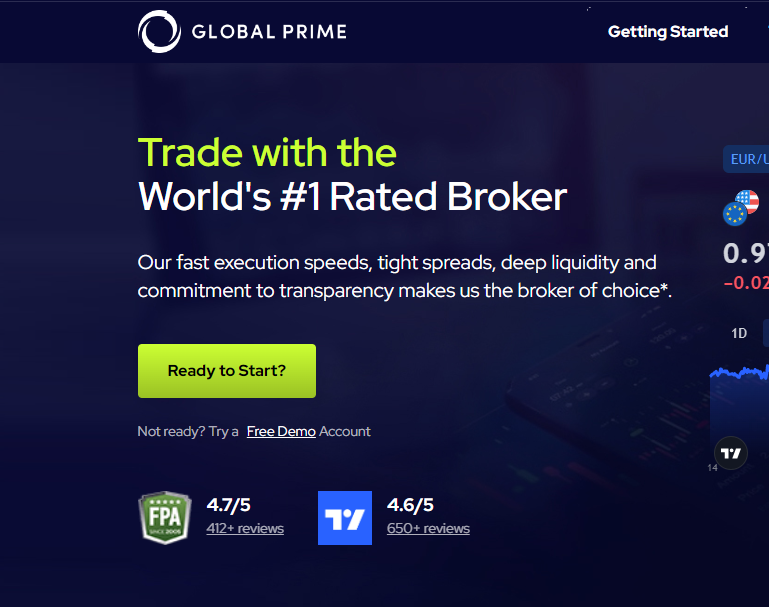Looking to join a prop trading firm? You’re in the right place…
Are you intrigued by the idea of trading with larger capital and gaining access to advanced tools and resources? If so, joining a proprietary trading firm might be the key to unlocking your full trading potential.
In this blog post, we will:
- Explain what a prop trading firm does,
- Compare prop trading firms vs. hedge funds vs. investment banks,
- Outline the benefits and downsides of joining a prop trading firm,
- List the common requirements to join a prop trading firm,
- Explain the steps to secure a position at a prop trading firm,
- Mention the average annual pay for a prop trader in the United States, and
- List the 10 best prop trading firms.
What is a Prop Trading Firm, and How Does it Work?
A proprietary trading firm, or prop trading firm, is a financial institution that engages in trading financial instruments using its own capital. The firm allocates its funds to individual traders, who are employees or contracted traders working on behalf of the firm. These traders make trades in many financial markets with the aim of generating profits.
The firm provides traders with access to trading platforms, advanced trading tools, research resources, and technology infrastructure to support their trading activities. They also allocate capital to traders, monitor their performance, manage risk, and ensure compliance with regulatory requirements.
The profit generated from successful trades is shared between the firm and the individual traders, usually through a performance-based compensation structure. The traders receive a portion of the profits they generate, which encourages them to make more profitable trades and manage risk effectively.
The firm provides traders with funds, resources, and support to execute trades, while the traders analyze the markets, make trading decisions, and aim to generate profits for the firm.
Prop Trading Firms vs Hedge Funds vs Investment Banks
| Comparison Factors | Prop Trading Firms | Hedge Funds | Investment Banks |
|---|---|---|---|
| Capital Source | Firm’s own capital | External investors | Client deposits and capital |
| Compensation Structure | Performance-based for traders | Management and incentive fees | Salary, bonuses, commissions |
| Trading Activities | Trading firm’s own capital | Trading on behalf of investors | Trading on behalf of clients |
| Business Operations | Focus solely on trading | Investment management | Diverse services and products |
| Profit Sharing | Shared with individual traders | Shared with investors | Shared with employees |
| Market Influence | Limited impact on overall market | May influence specific markets | Play key roles in markets |
| Liquidity Provision | Contributes to market liquidity | Varies depending on strategy | Facilitates market liquidity |
Benefits of Joining a Prop Trading Firm – For Traders
- More access to large trading funds and capital
- Increased buying power
- Advanced trading tools and technology
- Mentorship and learning opportunities
- Risk management support
- Performance-based compensation
- Networking and industry connections
Downsides of Joining a Prop Trading Firm – What Are the Disadvantages of Prop Firms?
- You have to share all profits with the Firm
- They have strict risk management controls
- It can be a high-pressure environment
- You may have a conflict of interest with the firm’s objectives
- You’re trading with the firm’s money, so they get to make most of the trading decisions
Common Requirements to Join a Prop Trading Firm
- Trading experience
- Strong track record
- Proficiency in market analysis
- Understanding of risk management
- Knowledge of trading strategies
- Familiarity with trading software and tools
- Ability to perform under pressure
- Analytical and decision-making skills
- Good communication and teamwork abilities
- Compliance with regulatory standards
- Adaptability to market conditions
- Interest in learning and development
Note: These are qualities that any trader out there can also claim to have. You should have proof of these qualities, and convince the application board of the prop trading firm that you’re a perfect fit for them.
Note that you’ll still be given trading tasks to evaluate your experience. They’ll test your proficiency in market analysis, knowledge of trading strategies, risk management and ability to perform under pressure. If you outperform other applicants, consider yourself picked.
How to Join a Prop Trading Firm – Steps to Secure a Position at a Prop Trading Firm
1. Research and Identify Firms: Conduct thorough research to find prop trading firms that align with your trading interests and goals.
2. Build a Trading Track Record: Develop a solid trading track record by practising and demonstrating consistent profitability in simulated or live trading.
3. Enhance Trading Skills: Continuously improve your trading skills through self-education, attending trading courses, and utilizing trading resources and tools.
4. Prepare a Trading Resume: Create a professional resume that highlights your trading experience, skills, and performance metrics.
5. Submit Applications: Apply directly to prop trading firms that are actively hiring. Submit your trading resume, cover letter, and any required application materials.
6. Complete Interviews and Assessments: Participate in interviews and assessments, which may include trading simulations, technical interviews, and behavioural assessments.
7. Demonstrate Trading Skills: Showcase your trading abilities by participating in firm-sponsored trading challenges or competitions, if available.
8. Negotiate Compensation and Terms: If offered a position, negotiate compensation, profit-sharing terms, risk limits, and any other relevant terms of the agreement.
9. Accept the Offer and Join the Firm: Once the terms are agreed upon, formally accept the offer and commence your journey as a trader at the prop trading firm.
How Much Do Prop Trading Firms Pay?
According to Zip Recruiter, the average annual pay for proprietary trading firms in the United States is $84,428 a year. Note that this is just the base salary. You will get many other payments and incentives, depending on how many winning trades you have and how much profit you generate.
The Best Prop Trading Firms
We’ve written another post where we mentioned the best prop trading firms in the industry, their unique features, and what sets them apart from the rest. We ranked them based on popularity, profit splits, maximum capital funding and other important factors.
Here’s a snippet of the post. You should read more for the full details.
| Prop Firm | Profit Split Percentage | Maximum Funding |
|---|---|---|
| FTMO | Up to 90% | $400,000 |
| Topstep | 100% up to $5,000, then 80% | $150,000 |
| FundedNext | Up to 90% | $4,000,000 |
| The Funded Trader Program | Up to 90% | $1,500,000 |
| The 5%ers | Up to 100% | $4M per account (up to 7 accounts) |
| Audacity Capital | 50% | $500,000 |
| Fidelcrest | 70% – 85% | $400,000 |
| City Traders Imperium | Up to 75% | $500,000 |
| Lux Trading Firm | 65% | $2.5 million |
| My Forex Funds | Up to 80% | $600,000 |
The top prop trading firms are usually compared based on:
- Profit splits
- Total or maximum funding possible
- Number of tradable assets
- The evaluation process, and their duration
- How fast they promote accounts to the maximum funding level
- The maximum loss allowed
Note: Some prop firms have trial accounts, instant funding, and bonuses, and some have up to a 90% profit split. These are the top prop trading firms.
Recommended for Next Read







